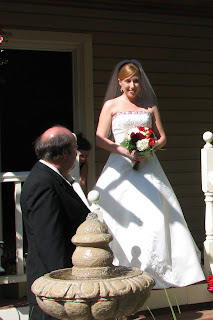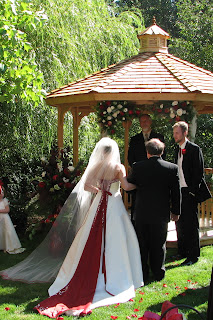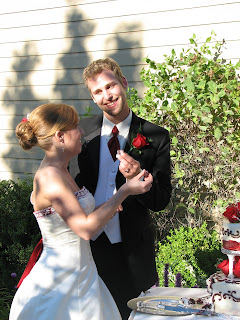I hold different pieces of my understandings and belief with varied degrees of certainty. There are quite a few positions that I hold as in a mirror dimly, trusting and seeking that coming day when all shadows and forms are removed and the purity of light reveals the face of the true substance.
There are also some beliefs that I maintain, that are so fundamental to my understanding of life and existence, that without them everything would become clouded and uncertain. Most fundamentally, I believe that the God of the Scriptures, my God, is a God who intervenes in the lives of normal people and
changes them. This, to me, is the message of the cross of Jesus Christ. Who I am today, is not who I am tomorrow. Who I
was yesterday does not ever dictate who I
am or who I
will be.
I reflect upon these convictions in light of what is currently the most emailed article,
If You Run a Red Light, Will Everybody Know?, from the NY Times. This article describes a newly developed service that allows anyone to search criminal records for free. Although public access to criminal records is not a new development, the NY Times reports: "Academics have a term for the old inaccessibility of records like those for criminal convictions: “practical obscurity.” Once upon a time, people in search of this data had to hire private investigators to navigate byzantine courthouses and rudimentary filing or computer systems, and to deal with often grim-faced legal clerks."
Now, however, in the privacy of a home, with a birth date, a name and a website, anyone who is even just playfully interested in the past shortcomings of another person can be rewarded in moments.
From every perspective that I have tried to understand this, Hester
Prynne with her crimson "A" in
The Scarlet Letter always comes out ahead of any modern person who has a criminal past.
I understand that patterns and habits are hard to break. I actually understand that best through self-observation. But I know, with all certainty, that people can change, that habits can be broken and that the scummiest person can become a saint. I know that sometimes change is rare, but the message of the cross offers every rotten sinner the freedom and hope of change.
To confine a person to their past, is very cruel indeed. It is, as if to say, "There is no future for you."
I think that there is a reason that the true Book of Judgment is closed to human eyes. Our eyes are not fit to look readily upon
another's sin. Would that we could hear Jesus say to us that he who speaks to his brother angrily is a murderer and that he who looks upon a woman lustfully is an adulterer.
Oh, for societal grace to see the logs in our own eyes, and not be so readily taken with the planks in
another's eyes. Oh, for decency to offer a person a hope and a future. Oh, for a love that looks at potential and not at patterns. Oh, for a discipline that restrains
curiosity and respects trust.
 I have spent a lot of time trying to figure out how national politics influences my every day life, but this weekend it has become much clearer: I have been called "Sarah Barracuda" about twenty times today.
I have spent a lot of time trying to figure out how national politics influences my every day life, but this weekend it has become much clearer: I have been called "Sarah Barracuda" about twenty times today.

















 Tomorrow morning if you wake up
Tomorrow morning if you wake up











